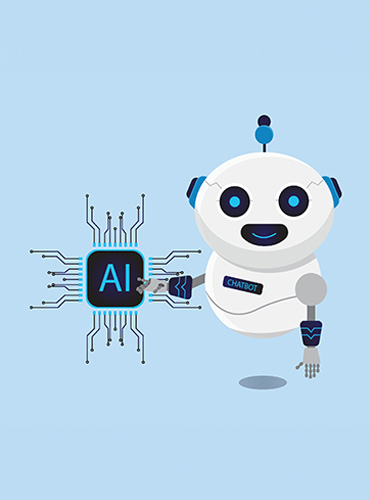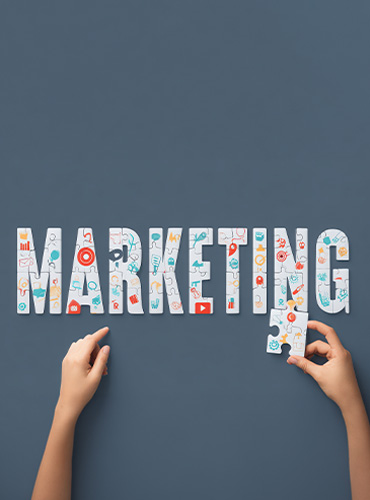
AI has become a marketing reality today. 92% of businesses plan to invest in generative AI within the next three years. This rapid growth will push the market value to $217.33 billion by 2034.
Marketing teams already embrace AI extensively. About 88% of marketers use AI tools daily in their work. The technology does more than automate tasks. Companies that use artificial intelligence in marketing see their teams moving toward strategic activities, with 75% expecting this trend. Marketing professionals have mixed reactions to these developments. Most feel excited about the technology – 69% express optimism, yet some worry about their evolving roles.
The numbers tell an interesting story about AI’s effect on marketing teams. Our analysis reveals how AI reshapes traditional roles and what marketing professionals should expect in 2025.
How AI adoption is transforming marketing teams
Marketing teams in every industry are adopting AI technologies faster to boost their operations. 94% of organizations use AI to prepare or execute marketing. This technology has found its way into many marketing functions and team structures.
AI usage across marketing departments
Marketing teams now use AI tools in many ways. Research from SurveyMonkey shows that 51% of marketing teams use AI to optimize content. 57% of marketers use generative AI for content creation, and 55% for idea generation. The technology has made its mark in other areas. 45% of teams apply it to SEO and marketing optimization, and 49% to research and analysis.
AI has become essential for creating customized customer experiences. 73% of marketing professionals say AI plays a key role in this area. 40% of marketers use artificial intelligence to conduct research. This helps them learn about products, markets, brands, and customers more effectively than before.
Moving from manual to strategic roles
AI adoption has changed marketing roles completely. 75% of companies currently investing in AI technology want to move their talent into more strategic roles. Rather than cutting jobs, AI has reshaped job functions by automating routine work.
Marketing teams used to have specialists who focused on one area like content creation or SEO. Notwithstanding that, AI makes shared automation possible and boosts productivity. This has led to combined roles. New hybrid positions like “content and SEO specialists” have emerged. These professionals use AI tools to create and optimize content at the same time.
Why marketers are optimistic about AI
Job displacement concerns exist, but marketing professionals remain positive. 69% of marketers feel excited about AI’s impact on their jobs. Only 16% of marketers see the rise of AI as a threat. They feel this way because they see real benefits.
Surveys show the main benefits are increased productivity (28%) and improved marketing ROI (25%). Nearly 75% feel AI gives them a competitive advantage. 78% of those using generative AI say it’s having a positive impact.
Marketers now see their value differently. AI handles repetitive work, which lets them focus on creative strategy, emotional intelligence, and relationship building. These areas need human expertise, even with all our technological progress.
Top ways marketers are using AI in 2025
Brands using AI in digital marketing save substantial time. Their content creation time drops by 50%. 54% of organizations also report lower costs. These benefits make AI tools a must-have for marketing teams in 2025.
Content creation and optimization
Artificial intelligence in marketing now creates everything from social media posts to complete blog articles. 51% of marketing teams use AI to optimize content [Previous Section]. These tools study engagement patterns and what users like to create content that appeals to target audiences. They also boost SEO by suggesting keywords and making content more readable to match search intent.
Personalization and customer segmentation
The use of AI in marketing truly stands out in personalization. AI studies behavioral data to group audiences by demographics, browsing history, and buying patterns. This helps brands deliver custom experiences that boost engagement. Louis Vuitton, to name just one example, reviews over 250,000 messages monthly on social media to understand what customers think. This personalized approach keeps customers coming back by adapting to their changing priorities.
Social media and campaign automation
AI automation has revolutionized social media management. Tools generate post ideas, pick the best posting times, and create virtual influencers. AI watches brand mentions on all platforms with live monitoring and labels them as positive, negative, or neutral. AI chatbots also provide 24/7 customer support. They handle routine questions while human agents tackle complex issues.
Data analysis and performance tracking
AI processes big datasets and turns raw information into applicable insights. We used predictive analytics with historical data to forecast trends and what consumers want. This helps marketers stay ahead instead of just reacting. AI also runs “what if” scenarios before making decisions. This feature proves especially valuable for campaign optimization and budget planning.
Challenges marketers face with AI tools
Recent advances in AI in marketing look impressive, but companies face major hurdles when putting these tools to work. A recent survey reveals that 31% of marketers have concerns around the accuracy or quality of AI tools. This gap between what’s promised and what actually works creates real challenges.
Concerns about content quality and accuracy
AI tools don’t deal very well with factual accuracy. The biggest problem occurs when AI models can produce “hallucinations” or completely fabricated information. Brands risk damaging their reputation and losing customer trust because of false claims. Marketing teams report that through 2025, they see content coherence and relevance, especially in longer text formats where AI has difficulty maintaining a complete theme. The situation becomes more problematic because AI content often lacks the emotional intelligence, creativity and authenticity that human writers bring. Sophisticated audiences quickly spot this generic feel.
Lack of training and AI literacy
The numbers tell an interesting story. 67% of respondents cited lack of education and training as the top barrier to AI adoption in marketing. This percentage has grown over the last several years. The current situation shows 75% of organizations either offer no AI-focused education for their marketing teams (47%), have it in development (24%), or aren’t sure if it exists (4%). This knowledge gap has real consequences – 39% of respondents avoid generative AI tools because they don’t know how to use them safely. Making matters worse, 70% of marketing professionals state their employer doesn’t provide generative AI training. This creates a major skills barrier.
Technical barriers and integration issues
Marketing teams face ongoing challenges when connecting AI with their existing systems. We noticed that data quality issues can lead to inaccurate predictions and poor performance. This reduces how well AI works. These systems need high-quality data to function properly. Bad or missing information gives flawed analytical insights that weaken marketing strategies. On top of that, complex integration with existing IT systems and legacy infrastructure slows down implementation and reduces adoption. These technical challenges ended up creating unclear ROI, making it difficult to justify the investment despite the benefits of artificial intelligence in marketing.
What AI means for the future of marketing work

AI in marketing continues to evolve and the marketing workforce has experienced a dramatic transformation. 72% of marketing professionals feel overwhelmed by how quickly their job is changing. This change brings more opportunities than threats, despite common fears about job displacement.
How AI is changing job roles
Marketing roles are getting a makeover rather than disappearing. Artificial intelligence in marketing now handles routine tasks such as analytics and campaign optimizations. This allows marketers to focus on strategic work. AI-adopting marketers report increased productivity (40%), faster content creation (39%), and improved campaign ideation (30%). New hybrid positions like “content and SEO specialists” have emerged. These professionals make use of AI while providing strategic direction. The marketer’s role has evolved from execution to orchestration – AI handles tasks while humans handle strategy.
The need for new skills and training
AI literacy has become non-negotiable for marketing roles. Nearly four in five employers prioritize hiring AI-skilled talent. The challenge lies in finding qualified candidates – 75% of employers report difficulties finding necessary AI talent. Marketers need these essential skills to stay competitive:
- Critical thinking and prompt engineering skills
- Data curation and analytics capabilities
- Ethical awareness around AI use
- Creative problem-solving abilities
67% of respondents cite lack of education as the top barrier to AI adoption. The situation becomes more complex as 70% of marketing professionals report their employer doesn’t provide generative AI training.
Balancing automation with human creativity
Marketers who see AI as a collaborative partner will thrive in the future. 75% of creative professionals worldwide are using generative AI. This shows how AI boosts creative work instead of threatening it. Human skills like communication, empathy, adaptability, and creativity remain essential in an AI-driven marketing world. Successful marketing strategies combine AI’s analytical capabilities with human creativity and emotional intelligence. Teams should view using AI in marketing as a complement to human skills, not a replacement. This collaborative mindset leads to better results.
Conclusion
AI has altered the map of marketing, but not how people feared at first. Artificial intelligence helps marketing teams work smarter and focus on strategic thinking instead of replacing jobs. The numbers paint a clear picture – 94% of organizations now use AI for marketing, and 75% of companies want to move their talent toward more strategic roles.
Marketing teams have good reasons to stay optimistic. They now create content 50% faster, cut costs, and get better ROI. It also helps 73% of professionals provide individual-specific experiences to their customers. These advantages explain why only 16% of marketers see AI as a threat to their careers.
Success needs a balanced approach. AI performs well at data analysis, content optimization, and routine tasks. Human marketers bring creativity, emotional intelligence, and strategic thinking that cannot be replaced. Marketing success in 2025 and beyond depends on using AI as a powerful tool to boost human capabilities.
The digital world keeps evolving. Yet one truth stands out – professionals who welcome AI and develop their human skills will lead this new era of digital marketing.




